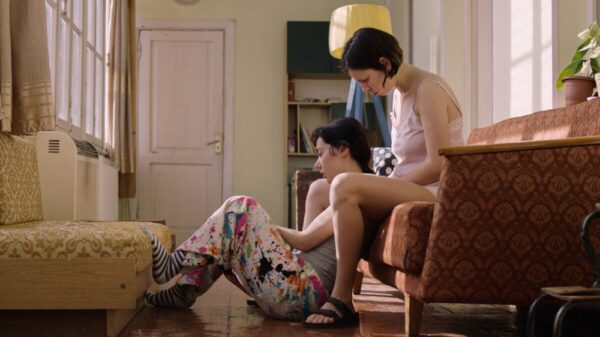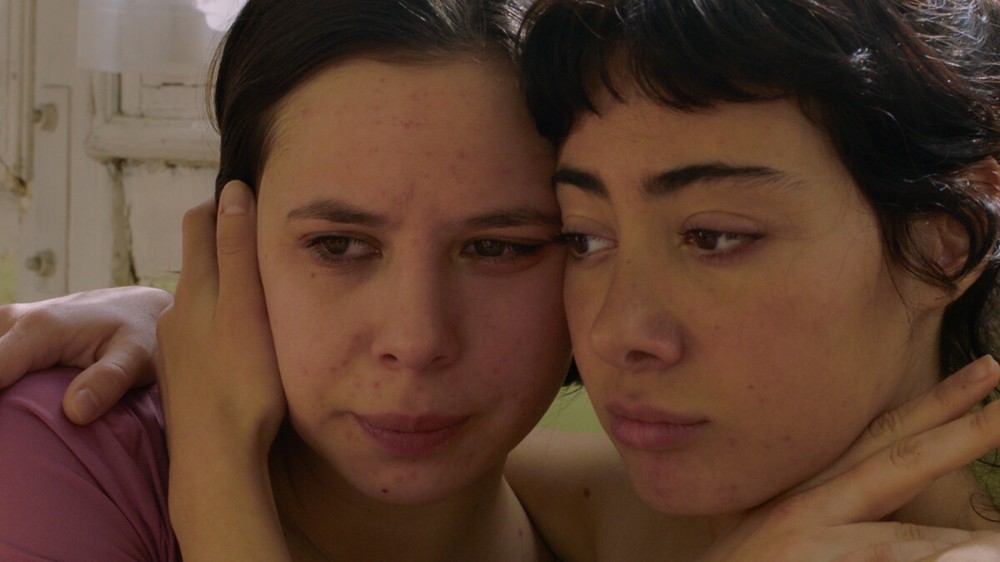
A Room of My Own (Directed by Ioseb ‘Soso’ Bliadze), set in Tbilisi, Georgia, during the pandemic asks one central question; do circumstances turn you into a mess, or does being a mess create your circumstances? It then artfully avoids coming down on one side or the other.
Tina (Taki Mumladze, also the co-writer with Bliadze) has just found a temporary room to let, and meets her new roommate Megi (Mariam Khundadze) They get off to an inauspicious start. Megi is caught up in her own drama and barely makes time to introduce herself but is perturbed when she discovers that Tina did not read the roommate ad correctly, and is only intending to rent the room for one month instead of six. Meanwhile, Tina is just marking time waiting for her boyfriend to ask permission for him and her to move in as a couple with his mother.
 Amid the chaos of the party flat in which they now mutually live they start to reveal themselves to each other. Megi, outwardly utterly confident, suffers from blackouts whenever she gets nervous. Tina is in a relationship with a friend of her husband, whom she had committed adultery with during her marriage. After Tina’s husband had found out he had stabbed her and was sent to prison. This destroyed her relationships with her own family.
Amid the chaos of the party flat in which they now mutually live they start to reveal themselves to each other. Megi, outwardly utterly confident, suffers from blackouts whenever she gets nervous. Tina is in a relationship with a friend of her husband, whom she had committed adultery with during her marriage. After Tina’s husband had found out he had stabbed her and was sent to prison. This destroyed her relationships with her own family.
As the men and the people around them let them down, or whom they let down, Tina and Megi fall into a sexual relationship. Not dating, not a couple, but still deeply emotionally involved with each other. As the pandemic rages, they make each other laugh, feed each other drinks and drugs, and provide a kind of comfort.
The ambiguity of their relationship is emblematic of the directorial and writing choices. The actors finely balance the sense that these women are definitely not bad people but a lot of their choices are. There is a pervasive sense of poverty, both a lack of money and a lack of good options. The title A Room of My Own is perhaps the biggest signal that, if they just had better options, they might have been able to engineer more success for themselves. It is not a sad film, but but it does make a case for how sad moments define people.
Review by ANDREW HEBDEN
Queerguru Contributing Editor ANDREW HEBDEN is a MEDIA & CULTURAL STUDIES graduate spending his career between London, Beijing, and NYC as an expert in media and social trends. As part of the expanding minimalist FIRE movement, he recently returned to the UK and lives in Soho. He devotes as much time as possible to the movies, theatre, and the gym. His favorite thing is to try something (anything) new every day.

